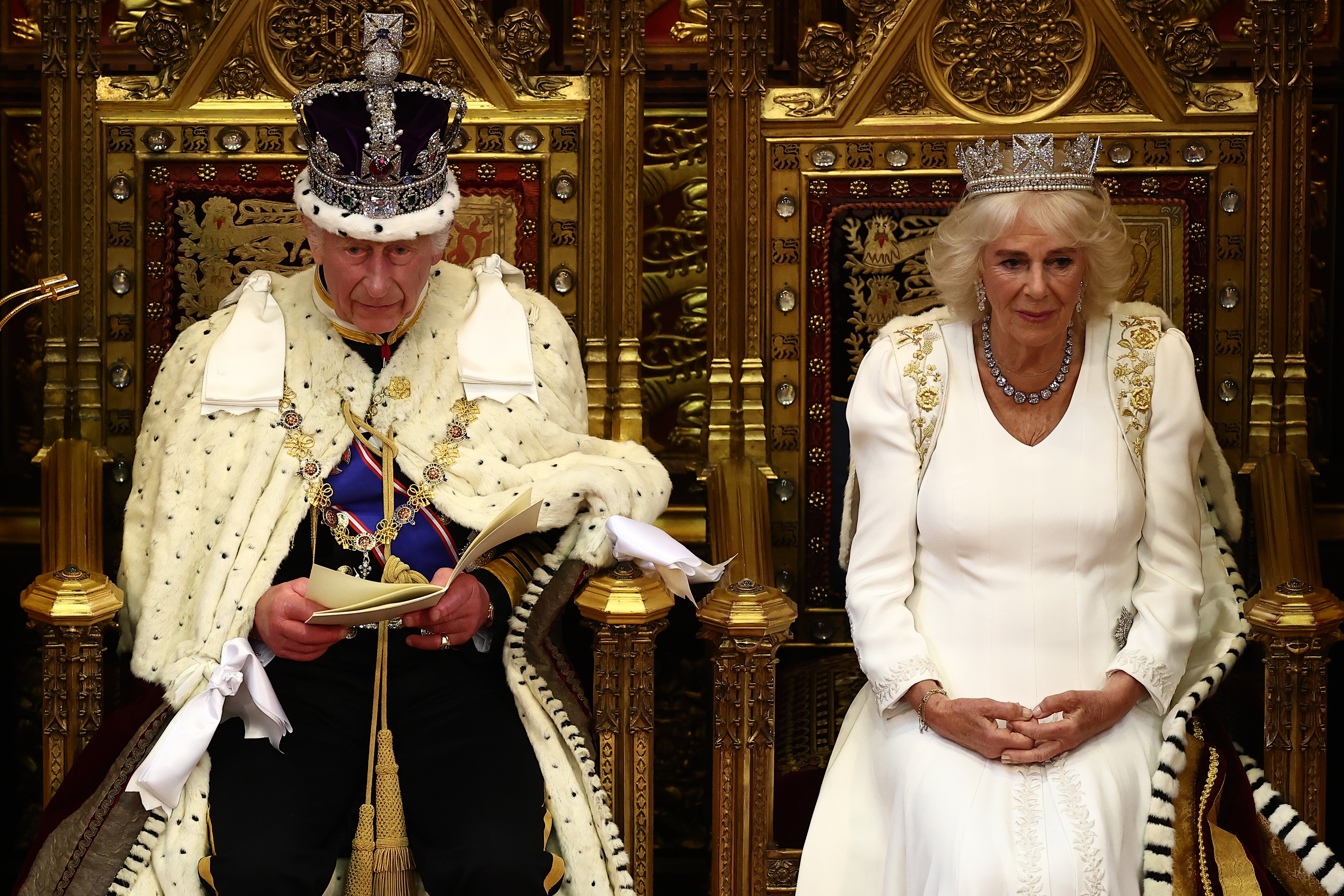There was a hole in the heart of the King’s Speech – and it hits 670,000 children
The government laid out its plans for transport, housing, and defence, but there was one key thing missing: scrapping the two-child benefit limit, writes Andrew Grice


“Rebuilding our country will not happen overnight,” Keir Starmer said in his introduction to the King’s Speech today. “The challenges we face require determined, patient work and serious solutions, rather than the temptation of the easy answer.”
The list of 36 Bills reinforced the image of a government that has successfully hit the ground running. But the prime minister’s words were revealing: the speech is also an attempt to buy time, until Labour has the money needed to fund the “decade of renewal” he wants.
So the government is right to prioritise measures to boost growth such as reforming the planning laws to speed up infrastructure projects and housebuilding. Without that, Starmer will lack the revenue to rebuild public services – the “change” that many voters elected the government to make.
But many of today’s proposals are from the “no cost or low cost” list Labour drew up in opposition, and there’s a problem: will voters really notice a difference? There’s a stark contrast, for example, between Tony Blair’s 1997 pledge to reduce class sizes to under 30 for five-to-seven-year-olds and Starmer’s promise to recruit 6,500 more teachers. Blair’s move was visible to pupils and parents, while Starmer’s limited pledge has been described as a third of a teacher for every school.
An important test for any King’s Speech is what does not make the cut because the package is a statement of the government’s priorities. Labour’s self-imposed fiscal constraints meant no mention of social care reform other than a (welcome) promise of a “fair pay agreement”. Labour wants to proceed on a cross-party basis but will have to bite the bullet on care to fix what it calls a “broken” NHS.
Sadly, there was a hole at the heart of today’s speech: the refusal to end the two-child limit on universal credit, which if left in place will affect another 670,000 children during the five-year parliament, pushing the majority of large families into poverty.
The government acknowledged the scale of the problem in its briefing note on the Children’s Wellbeing Bill to provide free breakfast clubs in every primary school. It said: “One in four children are in absolute poverty... We know too many children’s life chances are being scarred by rising poverty and too many arrive at school not ready to learn.”
It is odd that this government can promise to raise defence spending to 2.5 per cent of GDP – a when, not an if – and yet can’t commit to scrapping the indefensible two-child limit. At the very least, Starmer should promise a Child Poverty Bill to abolish the cap before the next general election.
Team Starmer argues he is acting with his head: a key priority is to restore trust in politics, and that means doing what Labour said on the tin in its manifesto. That’s why there were no surprises in the speech. Yet the manifesto had a cushion of £2.5bn – the difference between Labour’s limited spending plans and its revenue-raising measures, and enough to lift the cap in the current financial year.
Starmer won’t want headlines about a U-turn, but if you are going to turn, it is best done quickly. With a working majority of 180, the government is not in danger of losing a Commons vote, but the rebellion I predicted by Labour backbenchers, backed by the Liberal Democrats, SNP and Greens and even Nigel Farage and Suella Braverman, will create bad headlines until ministers eventually bow to the inevitable.
The Budget Responsibility Bill will confirm the Office for Budget Responsibility (OBR) will always assess any tax and spending changes. It should really be called the Liz Truss (Memorial) Bill, as it’s primarily a device to allow Labour to remind us about her disastrous mini-Budget.
But the Bill won’t make the OBR more likely to deliver rosier growth forecasts. Despite the IMF’s slight upgrade to UK growth prospects yesterday, Labour advisers fear privately the OBR might downgrade its March estimate in the autumn because it was more optimistic than several other forecasters.
The OBR predicted 1.9 per cent growth next year, but the IMF only 1.5 per cent. The OBR does not normally take account of changes to planning rules in its growth forecasts. It, not the IMF, will determine Rachel Reeves’s room for manoeuvre and her first Budget in the autumn will ultimately matter much more than today’s event.
Veterans of the New Labour era admit Starmer will find it hard to deliver his pledge to “take the brakes off Britain”. The fear lurking behind today’s pomp and ceremony is, as one told me: “What on Earth will we do in the next King’s Speech if we don’t get higher growth?”
A new study of previous Labour governments suggests the party’s economic record is better than it is given credit for.
But ominously, Malcolm Petrie, director teaching at St Andrews University, writes: “The plans of Labour governments have always been predicated on economic growth, which removes the need for difficult decisions on fiscal and monetary policy – when that growth doesn’t arrive, the problems are often insurmountable.”






Join our commenting forum
Join thought-provoking conversations, follow other Independent readers and see their replies
Comments